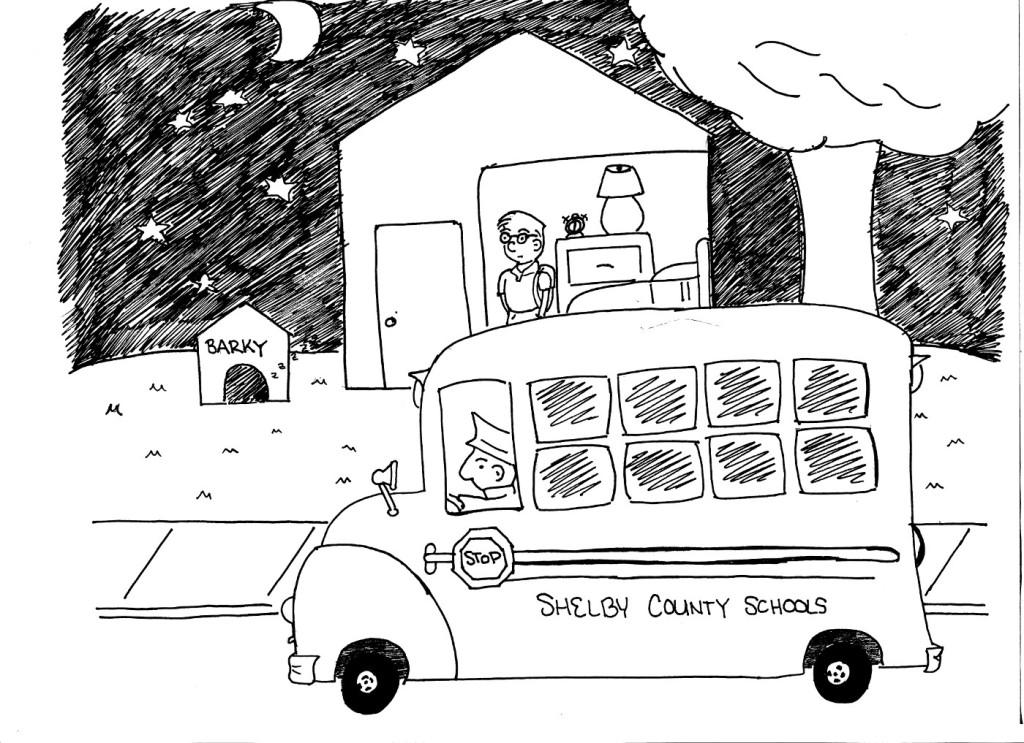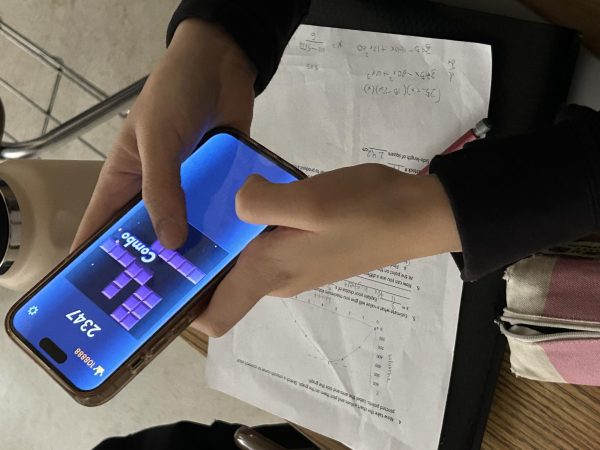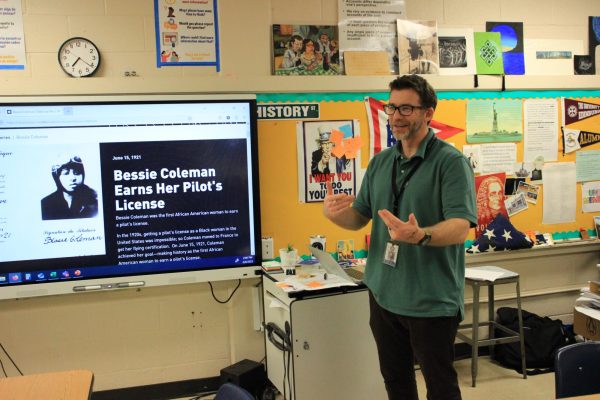Zombie high
Is the snooze button your best friend?
High school students starting school at seven is, to be blunt, one of the most nonsensical decisions the Shelby County School System has made. Teenagers need more sleep than the average person, but this policy gives us less.
The Shelby County School Board set up a schedule where high school starts at 7 a.m., middle school at 8 a.m. and elementary school at 9 a.m. For middle and elementary, the start time is flexible; there are many exceptions to the rule. White Station Middle starts at seven, and Bartlett Elementary at eight. However, 7 o’clock signals the start for every high school in the system – the one constant start time.
Honestly, who can sit there and learn new information at seven in the morning? For that matter, who wants to teach a bunch of kids at that time?
The decision was made in order to save money for buses, but there were other options.
Why not have elementary schools start at seven, allowing parents to get their young student to school and arrive to work on time? The current system creates a potential hassle because elementary students are the most reliant on transportation by adults. Also, elementary schools have afterschool care – something high schools lack.
Teenagers would benefit from the one extra hour of sleep. Studies show that more sleep equals higher standardized test scores. Considering America’s standing in the international educational system, we need higher test scores. Not to mention, it’s during high school that students take some of the most crucial tests – the same ones that will boost the school system’s ranking.
“I realize that some schools may have to start at 7 a.m., but that works better for young children. The research suggests that teens function better when they do not have to wake up so early in the morning,” said vice principal Mrs. Holland.
A study of high school students in Wake Forest, North Carolina, proves that an 8:30 start time versus a 7:30 marginally increased math and reading scores.
Sleep studies done by Brown University show that a teenager’s circadian rhythm (biological cycle) alters each night, making it harder for teens to fall asleep, yet we still have to wake up in time to be seated at our desk by 7 a.m.
The CDC suggests between 8.5 and 9.5 hours of sleep for teenagers. If we slept for the suggested number of hours, we’d have to be asleep by 8:30p.m-9:30p.m., and that’s only if you have the luxury of sleeping until 6 a.m. I do not know a single teen who goes to sleep at 8:30 p.m.
This isn’t simply about teenagers being lazy and wanting sleep; starting at 7 a.m. actually decreases our performance.
Perhaps some revisions need to be made?
Your donation will support the student journalists of White Station High School. Your contribution will allow us to purchase equipment and cover our annual website hosting costs.








































